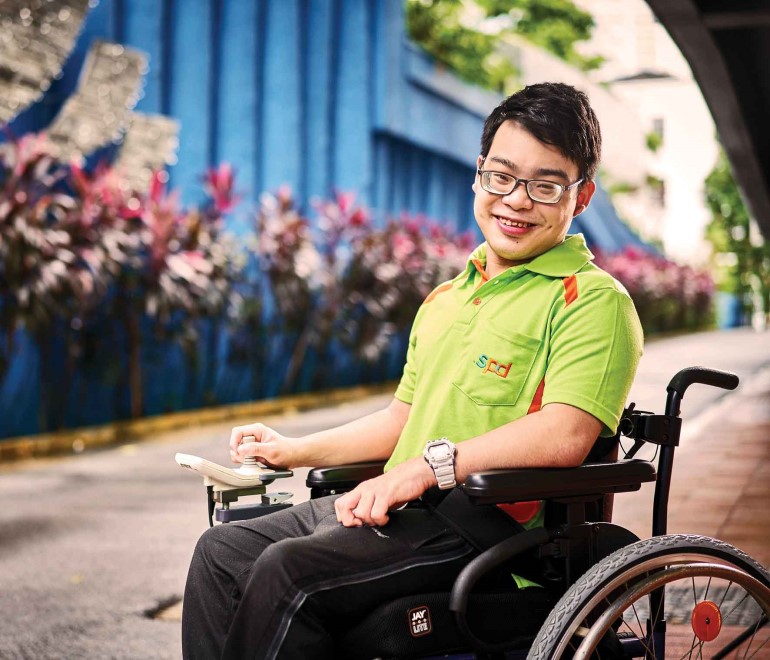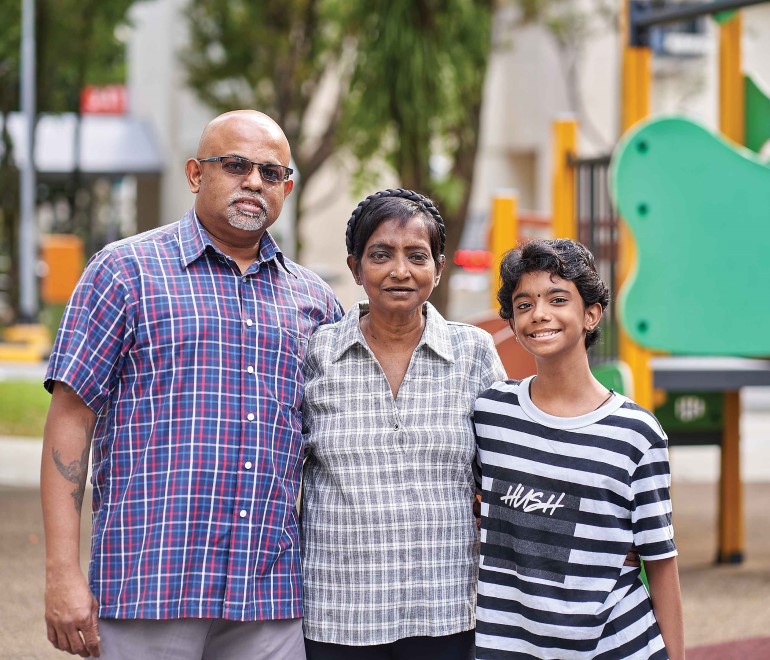
Overview of the Sector Landscape
As our nation progresses, the social service needs have also evolved. In view of this, National Council of Social Service conducted the Quality of Life (QOL) Study to examine the various communities in need through a person-centred and holistic approach. These are some of the trends and changing needs across the various groups we support at Community Chest.

A quarter of Singaporeans will be at least 65 by 2030, and households are shrinking. As home caregivers get older
and fewer in numbers, our ability to promote physical and social inclusivity together will be critical.
Sources:
1 Parliamentary Replies: Programmes and schemes to help adult persons with special needs or disabilities (3 October 2023).
2 Committee of Supply 2024 Debate.
3 Enabling Masterplan 2030.
- Since 2018, the average resident employment rate for PWDs aged 15 to 64 has increased steadily from 28.2% to 31.4%.1
- The goal is to increase the employment rate of PWDs to 40% by 2030.1
- There will be 30% more places in sheltered workshops by 2030 that will provide work skills training and job support for PWDs.2
- By embracing lifelong learning, PWDs can keep pace with the changing economy and remain independent.3
Sources:
1 Parliamentary Replies: Programmes and schemes to help adult persons with special needs or disabilities (3 October 2023).
2 Committee of Supply 2024 Debate.
3 Enabling Masterplan 2030.

Whether it is to receive education or support for mental and emotional well-being, early intervention programmes can empower children with special needs and youth-at-risk to achieve their potential and be better equipped for the future.
Sources:
1 Parliamentary Replies: Support for students with SEN in mainstream schools who are not found suitable for government-funded SPED or cannot afford private education (8 May 2023).
3 Understanding the Quality of Life of Children and Youth (published in 2022).
- Currently, APPROXIMATELY 7,100 STUDENTS with moderate to severe special needs (20% of all students reported with special educational needs), attend 24 SPED schools.1
- The remaining 28,400 STUDENTS with mild special educational needs attend mainstream schools, with inclusive classroom practices.1
- In response to rising demand, 7 new SPED schools for students with Autism Spectrum Disorder have started since 2022, while an eight SPED school will begin operations in 2026.2 By the 2030s, there will be 28 SPED schools catering to different profiles of students.1
- For children and youth with health/developmental conditions, POSITIVE PSYCHOLOGICAL WELL-BEING AND SOCIAL INCLUSION are the most important factors for their quality of life.3
Sources:
1 Parliamentary Replies: Support for students with SEN in mainstream schools who are not found suitable for government-funded SPED or cannot afford private education (8 May 2023).
2 Parliamentary Replies: Waiting List and Enrolment Time for Special Education Schools Supporting Students with Autism Spectrum Disorder.

Uplifting individuals in need in society begins with equal education opportunities and stable employment. Just coping with
rising costs is not enough.
The goal is to empower them
to live better and secure their
future.
Sources:
1 Budget 2023 Speech.
2 Speech by Deputy Prime Minister and Minister for Finance Lawrence Wong at the Social Service Offices (SSOs) 10th anniversary celebration on 19 October 2023.
- Issues that lower-income individuals and families face are complex and multifaceted and require HOLISTIC AND COMPREHENSIVE SUPPORT, to help them make lasting changes in their lives.1
- Additional support for families in need must be prioritised to help them achieve STABILITY, SELF-RELIANCE, AND SOCIAL MOBILITY so that they can have dignity and aspire to a bright future in Singapore.1
- About 14,000 families on the Community Link (ComLink) scheme are eligible for new areas of support like pre-school education, employment and home ownership.2
- The KidSTART programme, which has HELPED MORE THAN 8,500 CHILDREN since 2016, will be rolled out nationwide by 2026.2
Sources:
1 Budget 2023 Speech.
2 Speech by Deputy Prime Minister and Minister for Finance Lawrence Wong at the Social Service Offices (SSOs) 10th anniversary celebration on 19 October 2023.

Studies have revealed the
need to provide more support
for persons with mental health
disorders, heighten awareness
of the treatments available
and actively encourage
individuals to overcome the
stigma and seek help.
Sources:
1 Ipsos World Mental Health Day 2023 Report.
2 Attitudes towards Persons with Mental Health Conditions (published in 2022).
3 2016 Singapore Mental Health Study, Institute of Mental Health.
- 17% of Singapore residents faced mental health issues in 2022, up from 13.4% in 2020.1
- TWO IN FIVE EMPLOYEES agree that their organisation provides adequate support for their mental well-being.2
- MORE THAN THREE-QUARTERS of Singaporeans with mental disorders do not seek professional treatment.3
- Young people aged 18 to 34 had the HIGHEST PROPORTION OF MENTAL DISORDERS.3
Sources:
1 Ipsos World Mental Health Day 2023 Report.
2 Attitudes towards Persons with Mental Health Conditions (published in 2022).
3 2016 Singapore Mental Health Study, Institute of Mental Health.

With a better understanding
of their changing needs, we
can provide a better support
system and opportunities for
active participation. We can be
a more caring nation by being
their social connection and
sense of purpose.
Sources:
1 Speech by Mr Ong Ye Kung, Minister for Health at the AIC Community Care Work Plan Seminar on 3 May 2024.
2 Speech by Mr Edwin Tong, then-Senior Minister of State for Health, in response to motions on support for caregivers and ageing with purpose on 13 February 2019.
3 Speech by Mr Gan Kim Yong, then-Minister for Health, for the parliamentary debate on Eldershield Review Committee report on 10 July, 2018.
- In the last decade, the number of older seniors aged 85 and above has increased by almost 80%. 1
- About one in five seniors above the age of 85 have difficulties with three or more basic activities of daily living.1
- With an ageing population and family sizes shrinking, the old-age support ratio will decrease from 4.8 in 2018 to an estimated 2.7 in 20302. 1 in 2 Singaporeans are also expected to have some form of disability and require long-term care3. As such, demand for caregiving will likely grow in the near future.
Sources:
1 Speech by Mr Ong Ye Kung, Minister for Health at the AIC Community Care Work Plan Seminar on 3 May 2024.
2 Speech by Mr Edwin Tong, then-Senior Minister of State for Health, in response to motions on support for caregivers and ageing with purpose on 13 February 2019.
3 Speech by Mr Gan Kim Yong, then-Minister for Health, for the parliamentary debate on Eldershield Review Committee report on 10 July, 2018.
Find out more about the overview of the sector landscape, measuring the impact or view the full FY2023 Impact Report (PDF).